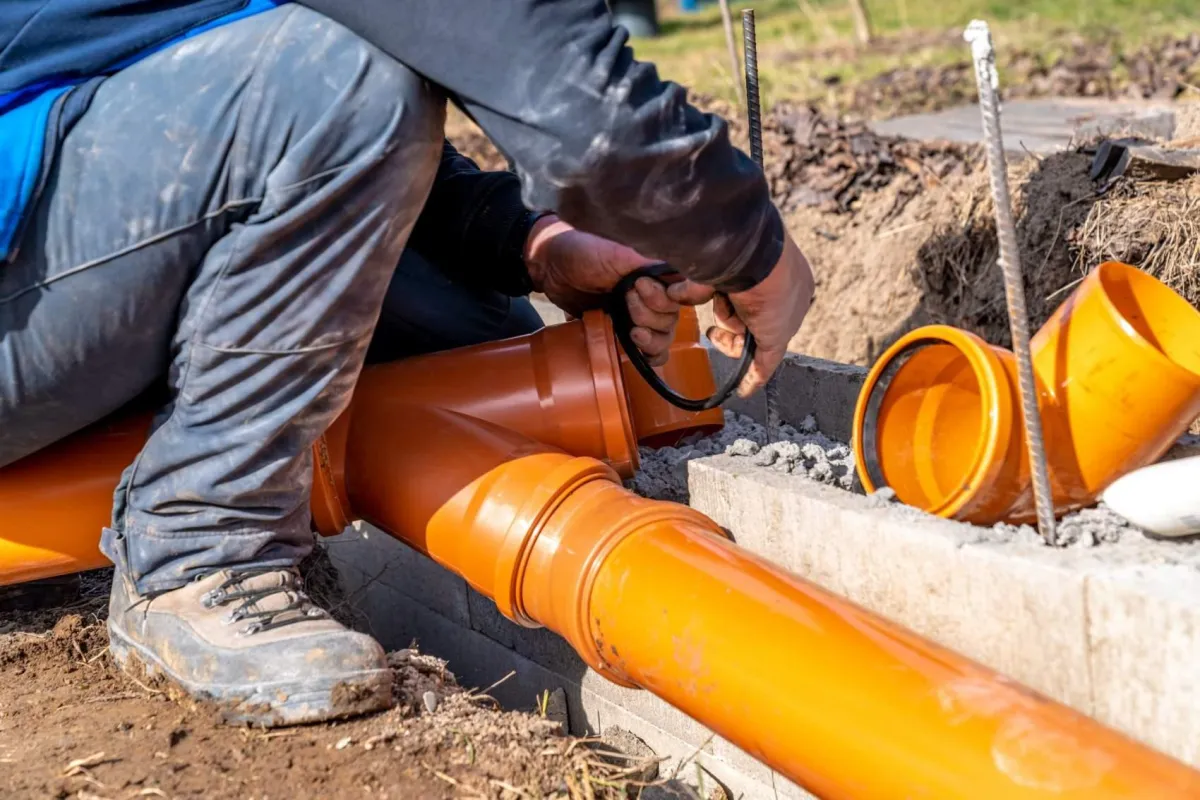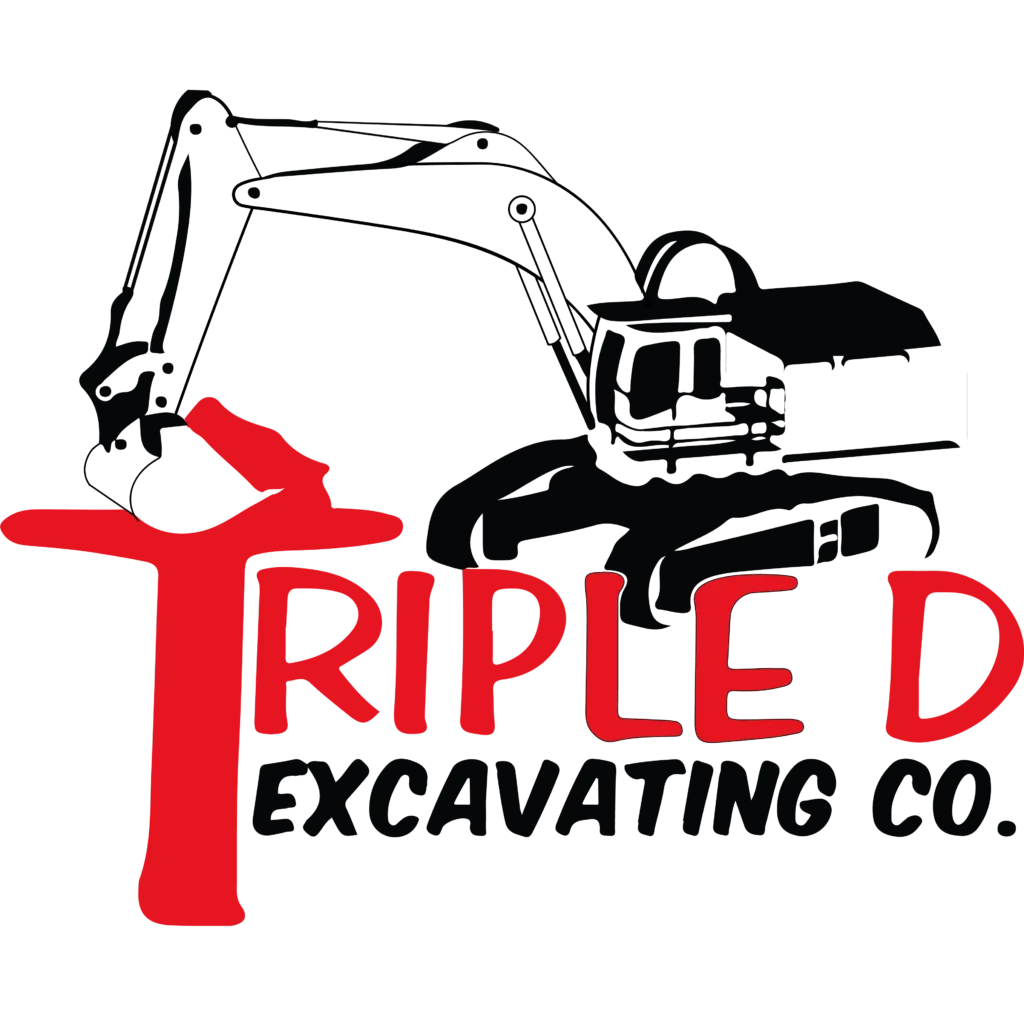Licensed, Bonded & Insured | Family Owned & Operated
049-012803 IL | IL Pumping License: 054-021753 | IA Pumping License: 12839
22 YRS. EXPERIENCE, FULL SITE PREP EXPERTS - HOW CAN WE HELP?

The Ultimate Guide to Hiring the Best Sewer Repair Service Near Knox County, IL
Introduction: Why Sewer Repairs Matter for Homeowners in Knox County, IL
If you’re reading this, chances are you’ve noticed something isn’t quite right with your sewer system. Maybe it’s slow drains, foul odors in the yard, or—worst of all—a dreaded sewage backup in the basement. As a homeowner, nothing makes your stomach sink faster than the thought of major sewer repairs. We get it. You’re worried about the cost, the mess, and whether you’ll even pick the right contractor for the job.
At Triple D Excavating Co., based in Orion, IL, we’ve seen this story play out countless times for families across Rock Island, Henry, Knox, Mercer, and Muscatine Counties. We’re not a big corporation with one-size-fits-all answers. Instead, we’re focused on tailoring solutions that actually fit your home, your land, and your budget. This guide is here to take the mystery out of sewer repairs so you can make a smart, confident choice.
Signs You May Need Sewer Repair (Before It Turns Into an Emergency)
Most homeowners don’t think about their sewer system until it fails. The problem is, sewer lines rarely quit without dropping hints first. Here are a few red flags you should watch for:
Frequent clogs – If you’re pulling out the plunger every week, the issue may not be your toilet—it could be the main line.
Gurgling noises – That bubbling sound in your drains often means air is trapped in the line because of a blockage.
Bad smells – Sewage odors in the yard or basement point to leaks or broken pipes.
Lush green patches – If one area of your yard looks like it’s on steroids, you may have a sewer leak feeding the soil.
Slow drains – When sinks and tubs across the house drain sluggishly, the problem usually lies deeper than the fixture.
Catching these early saves you money and stress. Left unchecked, a small crack or clog can turn into a collapsed pipe and a full-blown emergency.
Common Sewer Problems in Illinois Homes and Yards
In our area, we see a handful of sewer issues more than others. These include:
Tree root invasions – Older clay and cast iron pipes are magnets for roots that sneak in through joints and cracks.
Aging infrastructure – Many Illinois homes still rely on pipes installed 40, 50, or even 70 years ago. Time takes its toll.
Ground shifting – Seasonal freezing, thawing, and soil movement can cause pipes to crack or misalign.
Blockages from grease and debris – What goes down the drain doesn’t always stay gone. Over time, grease, wipes, and other debris build up.
Collapsed lines – When pipes give way completely, repairs become urgent.
Knowing what you’re up against helps you decide whether you need a quick fix, a section replacement, or a full sewer line overhaul.
Sewer Repair Options: Trenchless vs. Traditional Methods
Not all sewer repairs are done the same way. Today, you generally have two main approaches:
Traditional Digging
The contractor digs up your yard to expose and replace the damaged pipe.
Pros: Proven method, works for severe collapses.
Cons: Messy, disruptive, and can tear up landscaping.
Trenchless Sewer Repair
Uses pipe lining or pipe bursting technology to fix or replace pipes without major digging.
Pros: Less invasive, faster, and often cheaper overall.
Cons: Not always an option if the line is badly collapsed.
At Triple D Excavating, we walk homeowners through both methods, laying out what makes sense for your property so you don’t pay for work you don’t need.
The True Cost of Sewer Repairs in Knox County, IL
Let’s talk numbers, because cost is the first thing on most homeowners’ minds. Sewer repair prices vary depending on:
Type of damage (small blockage vs. collapsed pipe)
Repair method (trenchless vs. excavation)
Length and depth of the line
Accessibility (how much digging or equipment is needed)
While every job is different, here’s the reality: cutting corners often costs more in the long run. A cheap patch job today can leave you paying for a full replacement tomorrow. Our goal is to give you a fair, upfront estimate so there are no surprises.
How to Compare Sewer Repair Companies Near You
Hiring the right contractor is as important as fixing the pipe itself. Here’s what to look for when comparing companies:
Experience with local soil and sewer systems – Illinois ground conditions vary by county, and you want someone who understands them.
Licensing and insurance – Non-negotiable. Always check.
References and reviews – What are past customers saying? Do they mention clean work, good communication, and fair pricing?
Equipment and methods – Do they offer trenchless options, or just digging?
Customer service – Do they take time to explain your options, or just push the most expensive repair?
Questions to Ask Before Hiring a Sewer Contractor
Before signing a contract, ask these:
Can you show me where the problem is and explain my options?
Do you offer trenchless repair methods?
How long will the repair take?
What’s included in the estimate—and what’s not?
Do you handle permits with the county or city?
What kind of warranty do you provide on your work?
The best contractors don’t dodge these questions—they answer them clearly and confidently.
Reviews and Reputation: What Homeowners in Illinois Are Saying
Online reviews tell a story. Positive reviews often mention things like “no surprises on the bill,” “crew left my yard clean,” or “explained everything clearly.” Negative reviews, on the other hand, usually point to poor communication or hidden costs.
We always encourage homeowners to check not just the star rating, but the actual comments. A dozen glowing reviews from people in Knox, Henry, and Rock Island Counties are worth more than a vague 5-star review with no details.
The Risks of Choosing the Cheapest Sewer Repair Service
It’s tempting to jump at the lowest bid. But in sewer work, cheaper isn’t always smarter. The risks include:
Quick fixes that don’t last
Unlicensed contractors cutting corners
Shoddy repairs leading to repeat problems
Hidden fees tacked on later
When it comes to something as critical as your home’s sewer line, the best value is a contractor who fixes it right the first time.
Why Local Expertise Matters in Rock Island, Henry, Knox, Mercer, and Muscatine Counties
Every region has unique soil conditions, weather patterns, and infrastructure quirks. For example:
In Knox County, shifting soils from freeze-thaw cycles often crack pipes.
In Rock Island and Henry Counties, older clay pipes are common, making root intrusion a major issue.
In Muscatine County, flat terrain means poor drainage can stress sewer lines.
That’s why hiring a local contractor familiar with these challenges matters. We know what problems are most likely in your neighborhood and how to fix them efficiently.
The Best Time of Year to Schedule Sewer Repairs in Illinois
Can you repair a sewer line in January? Yes. But is it ideal? Not always. Here’s what we’ve found:
Spring and Summer – Easier digging, less frozen ground, quicker turnaround.
Fall – Good timing before winter freezes set in.
Winter – Repairs can be done, but frozen soil may slow work and increase costs.
Whenever possible, plan repairs before emergencies force your hand.
How Triple D Excavating Co. Helps Homeowners Solve Sewer Problems
We’re not here to sell you the biggest job possible—we’re here to solve the problem in the smartest way. That means:
Inspecting your line to pinpoint the issue.
Explaining repair options in plain language.
Offering fair estimates with no surprises.
Completing work with respect for your yard and property.
Standing behind our repairs with warranties homeowners can trust.
We’ve built our reputation across Rock Island, Henry, Knox, Mercer, and Muscatine Counties by treating each home like it’s our own.
Final Tips for Hiring the Best Sewer Repair Service Near Knox County
Don’t wait until a backup forces your hand.
Compare more than just prices—look at experience, reviews, and methods.
Ask direct questions and expect direct answers.
Prioritize local knowledge—contractors who work here know the ground beneath your home.
Conclusion: Protecting Your Home and Peace of Mind
Dealing with sewer repairs is stressful, but choosing the right contractor doesn’t have to be. By watching for warning signs, learning your repair options, and asking the right questions, you can protect both your home and your budget.
At Triple D Excavating Co., we believe every homeowner deserves honest answers, quality work, and peace

AVOID COSTLY MISTAKES:
Do NOT hire an excavating contractor without first reading our free guide:
The ULTIMATE Excavation & Septic "Success Guide."

We Offer Excavation Services NearYou!
If you don't see your specific area, contact us and we may still be able to help or give a referral.
All rights reserved | Privacy policy



